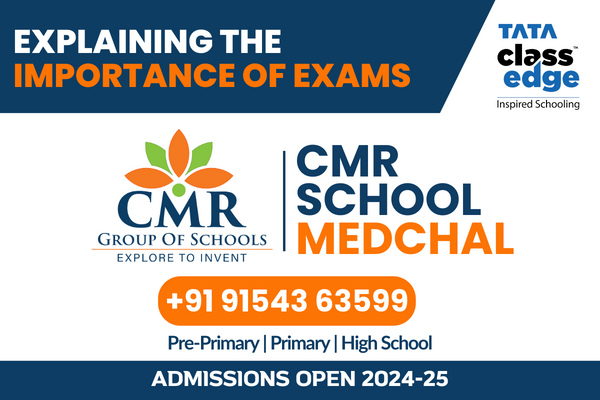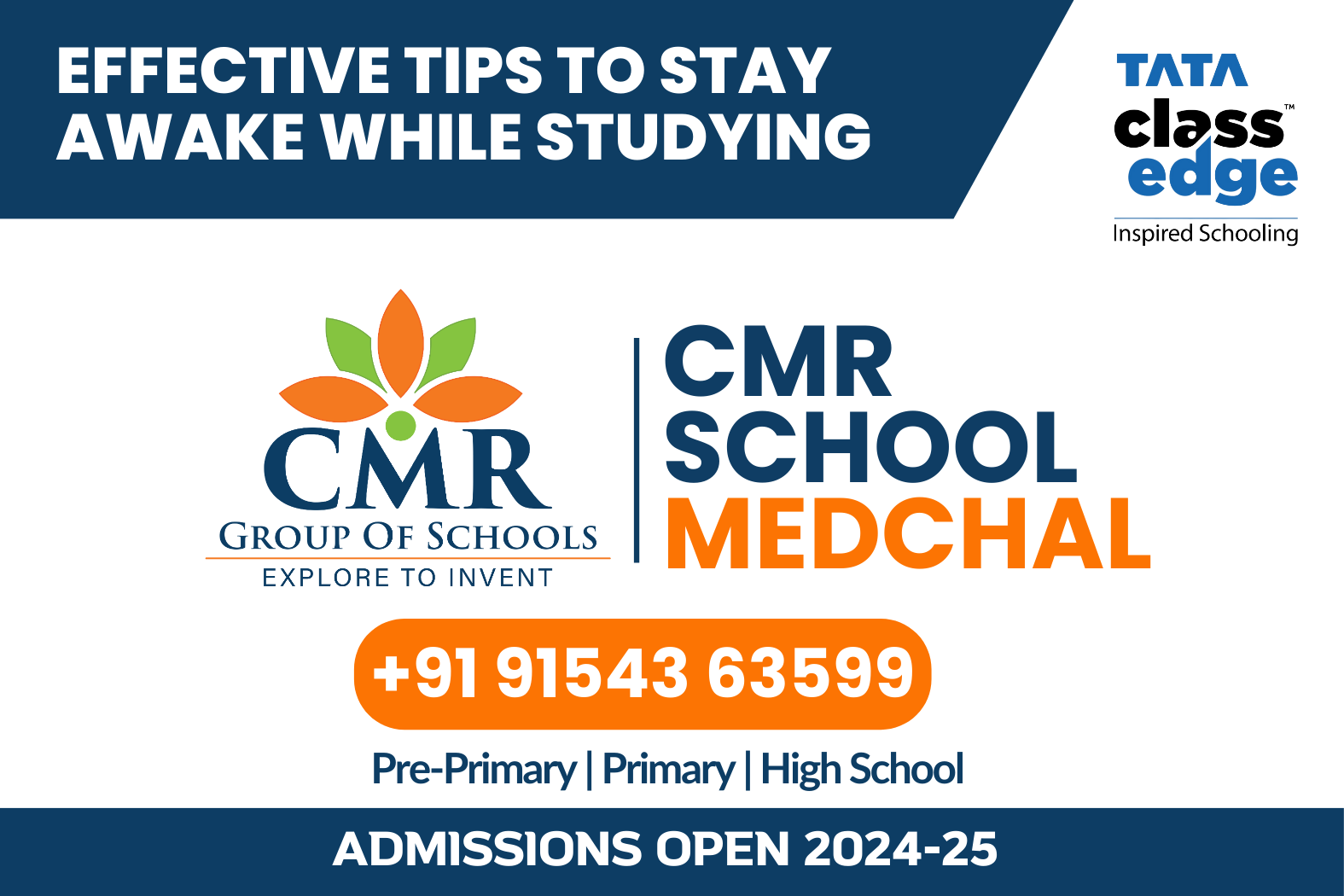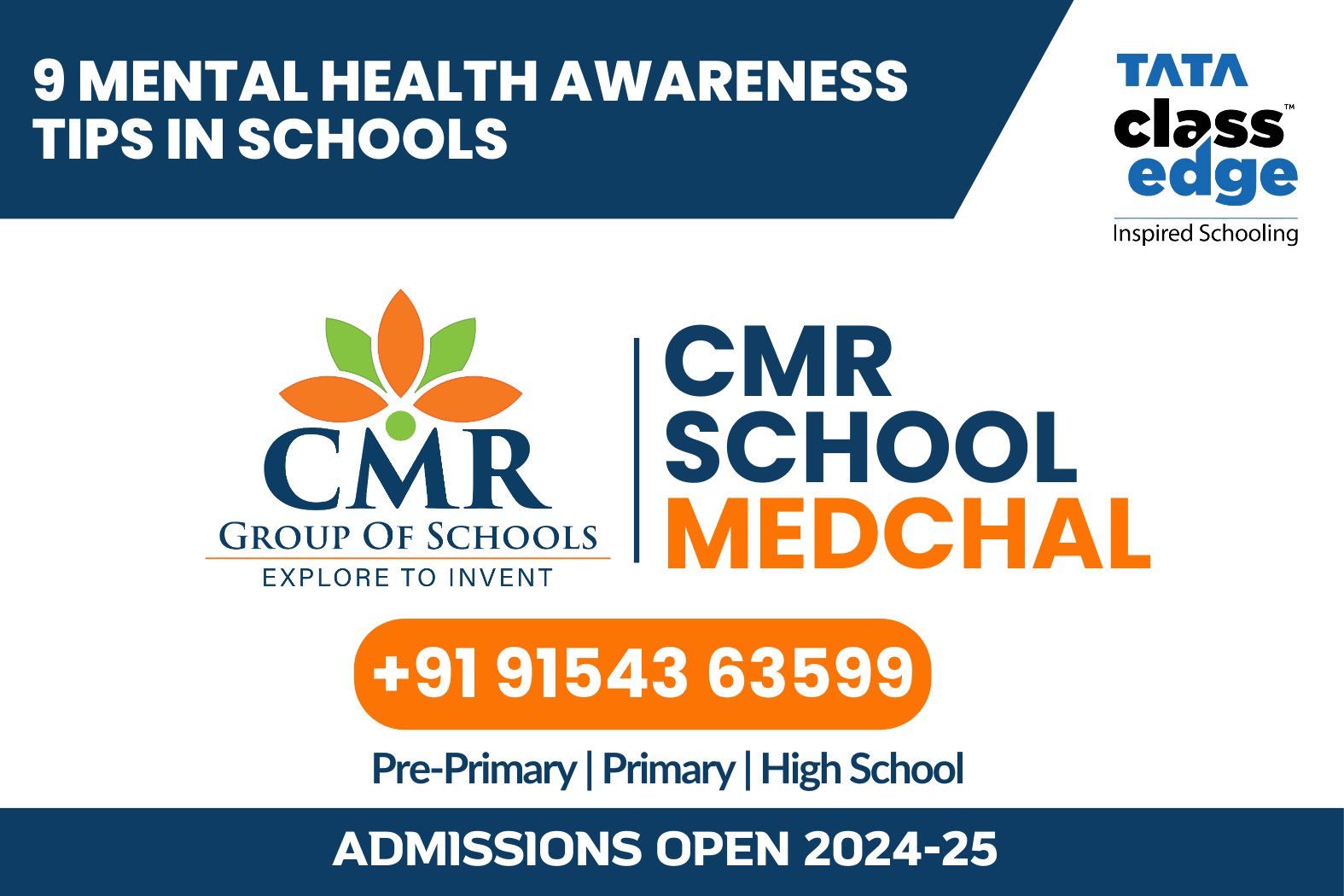Exams are a fundamental aspect of the educational system, serving as a means to assess students’ understanding, knowledge, and skills. At CMR School Medchal, we recognize the importance of exams in evaluating students’ academic progress and preparing them for future endeavors. In this article, we’ll delve into the significance of exams and their role in the educational journey of students.
Understanding the Purpose of Exams
Exams serve multiple purposes within the educational framework:
- Assessment of Learning: Exams provide a formal method for assessing students’ learning outcomes and academic achievements. They evaluate students’ comprehension of course material, mastery of key concepts, and ability to apply knowledge in different contexts.
- Feedback and Evaluation: Exams offer students and educators valuable feedback on their performance, strengths, and areas for improvement. Through exam results, students gain insights into their understanding of the subject matter, allowing them to identify areas where additional study or support may be needed.
- Motivation and Accountability: Exams serve as motivational tools, encouraging students to engage in active learning, review course material, and strive for academic excellence. They create a sense of accountability and responsibility, prompting students to take their studies seriously and prepare adequately for assessments.
- Preparation for Future Challenges: Exams prepare students for future challenges by developing essential skills such as critical thinking, problem-solving, time management, and effective communication. They simulate real-world scenarios where individuals are required to demonstrate their knowledge and competencies under pressure.
The Role of Exams in Academic Success
Exams play a crucial role in determining students’ academic success and progression:
- Grading and Evaluation: Exams contribute to grading and evaluation systems, where students’ performance is assessed and recorded. Grades obtained in exams often influence students’ overall academic standing, eligibility for advancement to higher levels of education, and opportunities for scholarships or academic recognition.
- Promotion and Graduation Requirements: Exams may serve as criteria for promotion to the next grade level or graduation from an educational program. Students must meet certain performance standards and achieve passing grades in relevant exams to progress academically and earn qualifications or certifications.
- College Admissions and Career Opportunities: Exams such as standardized tests (e.g., SAT, ACT) play a significant role in college admissions processes, where students’ scores are considered alongside other application materials. High exam scores may enhance students’ chances of gaining admission to prestigious colleges or universities, securing scholarships, and pursuing desired career paths.
Strategies for Exam Preparation and Success
To excel in exams, students can adopt various strategies to enhance their preparation and performance:
- Effective Study Habits: Develop effective study habits such as time management, organization, and consistency. Allocate dedicated study time, break down study materials into manageable chunks, and utilize active learning techniques such as summarizing, self-testing, and concept mapping.
- Understanding Exam Formats: Familiarize yourself with the format, structure, and expectations of different types of exams (e.g., multiple-choice, essay, practical). Review past exam papers, practice questions, and sample responses to become acquainted with exam requirements and maximize your performance.
- Revision and Review: Engage in regular revision and review of course materials, lecture notes, textbooks, and supplementary resources. Focus on understanding key concepts, identifying common themes or patterns, and making connections between different topics.
- Practice and Simulation: Practice answering exam-style questions under timed conditions to simulate the exam environment and build confidence. Seek feedback from teachers, tutors, or peers on your responses, and use mock exams or practice tests to identify areas for improvement.
- Healthy Lifestyle: Maintain a healthy lifestyle during exam periods by prioritizing sleep, nutrition, exercise, and stress management. Adequate rest, balanced meals, physical activity, and relaxation techniques can help optimize cognitive function, concentration, and emotional well-being.
Conclusion
In conclusion, exams play a vital role in the educational journey of students, serving as assessments of learning, feedback mechanisms, motivational tools, and preparatory experiences for future challenges. At CMR School Medchal, we recognize the importance of exams in evaluating students’ academic progress and preparing them for success in higher education and beyond.
FAQ’s :
- Why are exams important in the educational system?
Exams are important in the educational system as they serve as assessments of students’ learning, provide feedback on their academic progress, and help evaluate their knowledge and skills. - What is the purpose of exams in schools?
The purpose of exams in schools is to evaluate students’ understanding of course material, measure their academic achievements, provide feedback on their performance, and guide instructional planning and decision-making. - How do exams benefit students?
Exams benefit students by motivating them to engage in active learning, providing opportunities for self-assessment and reflection, preparing them for future challenges, and serving as criteria for academic progression and achievement. - What types of exams are commonly used in education?
Common types of exams used in education include multiple-choice exams, essay exams, practical exams, standardized tests, oral exams, and project-based assessments. Each type of exam assesses different aspects of students’ knowledge and skills. - How should students prepare for exams effectively?
Students can prepare for exams effectively by developing good study habits, understanding the exam format and requirements, reviewing course materials regularly, practicing exam-style questions, seeking clarification on challenging topics, and maintaining a healthy lifestyle. - What should students do if they feel anxious about exams?
If students feel anxious about exams, they can practice relaxation techniques such as deep breathing, visualization, and progressive muscle relaxation. They can also seek support from teachers, counselors, or peers and adopt stress management strategies to cope with exam-related stress. - Are there any tips for managing time during exams?
Yes, students can manage time during exams by creating a study schedule, prioritizing tasks, breaking down study materials into smaller segments, setting realistic goals, and using time management techniques such as the Pomodoro Technique or the Eisenhower Matrix. - How can parents support their children during exam periods?
Parents can support their children during exam periods by providing a conducive study environment, offering encouragement and emotional support, helping with time management and organization, providing healthy snacks and meals, and avoiding unnecessary pressure or criticism. - What should students do after receiving exam results?
After receiving exam results, students should review their performance objectively, identify strengths and areas for improvement, seek feedback from teachers or tutors, set goals for future improvement, and take proactive steps to address any learning gaps or challenges. - Are exams the only measure of students’ academic abilities?
No, exams are not the only measure of students’ academic abilities. While exams provide valuable insights into students’ knowledge and skills, other forms of assessment such as projects, presentations, portfolios, and class participation also contribute to a comprehensive understanding of students’ academic achievements and abilities.
Admissions are now open for the 2024-25 academic year at CMR School Medchal. Contact us today to enroll your child and provide them with a comprehensive education that emphasizes academic excellence, personal growth, and preparation for the challenges of tomorrow.
For admissions, contact us at +91 9154363599 or visit www.cmrschool.in.



